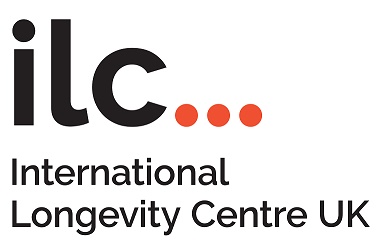PriDem
Primary care-led post diagnostic Dementia Care (PriDem): developing evidence-based, person-centred sustainable models for future care
Receiving a diagnosis of dementia may have a significant and lasting psychological and emotional impact on people with dementia and their families, requiring a period of adjustment and ongoing support. However, post diagnostic dementia care in England is poorly coordinated with marked geographical differences. The Alzheimer’s Society Report in 2015 found that 49% people with dementia said they received insufficient support after diagnosis. Since people with dementia and their families receive most of their care, most of the time from their GP, the 2016 World Alzheimer Report recommended that future post diagnostic dementia care should be led by primary care. This should allow more appropriate use of specialist resource and maintain better quality of care, whilst meeting the needs of a rapidly ageing population. This is also similar to the care of other patient groups, such as people with diabetes. By providing post-diagnostic support in primary care, access to this and other specialist services (such as old age psychiatry) could be much improved.
What is PriDem?
The PriDem programme has been funded by the Alzheimer’s Society to develop and test a ‘good practice’ model of primary care led, post diagnostic dementia care. The work of PriDem is organised into six parts, called workstreams (WS), which will be completed over four years. The project started on the 1st April 2018 and will conclude at the end of October 2023.
The research is being completed by a multi-disciplinary team led by Professor Dame Louise Robinson at Newcastle University, in collaboration with a number of partner organisations:
University College London; Kings College London; University of Sussex; University of Manchester; Dementia UK; London School of Economics and Political Science; International Longevity Centre UK; University of Exeter.
What are we doing?
We will review existing practice and research on primary care based post-diagnostic support to make sure we build on what we know already (WS1). We will explore the views and experiences of a range of stakeholders on current post-diagnostic support, including people with dementia and their families and professionals who provide support (WS2). We will use our findings together with national guidance (NICE Dementia guidelines, 2018) to develop a new approach to primary care-led, post diagnostic dementia support that will be person-centred and sustainable (WS3). We will then test this new approach in practice (WS4), and estimate current and future costs (WS5). Our Pathways to Impact programme (WS6) will ensure findings influence policy and practice.
There are also two linked PhD projects embedded in PriDem - Ester Bellavia and Remko Tuijt.
Apply to use PriDem Data
PriDem welcomes approaches from researchers who wish to reuse any of our data for non-commercial projects. Researchers wishing to access PriDem data should initially read the terms of use in the data sharing agreement and complete and sign the data sharing agreement in full. An electronic copy of this form should be emailed to pridem@newcastle.ac.uk. Such requests will be reviewed by the PriDem Data Guardians Committee. This committee comprises senior members of the core PriDem team from both the host organisation, Newcastle University, and external co-applicant organisations in addition to several independent members from the programme's External Advisory Group.
Other Research
Other research projects based at Newcastle University that focus on dementia care include DePEC, SEED and COGNISANCE. For detailed information about each project, please use the links below.
DePEC - Dementia Prevention and Enhanced Care
DePEC is a National Institute for Health Research (NIHR) funded Global Health Research Group which aims to reduce the personal and societal burden of dementia in lower and middle income countries by developing approaches to reduce future numbers getting dementia, and develop more efficient post-diagnostic care.
SEED - Supporting Excellence in End of life care in Dementia
SEED was a NIHR funded research project which aimed to support providers and commissioners to identify and deliver good quality, community-based end of life care in dementia.
COGNISANCE - CO-desiGning demeNtia dIagnoSis ANd post-diagnostic CarE
COGNISANCE is an international project, working in partnership with Australia, Canada, the Netherlands and Poland to develop resources to support good post diagnostic dementia support from the point of diagnosis and in the first year.
GDPR
Further information on how we process your data can be found via the following link GDPR Information









